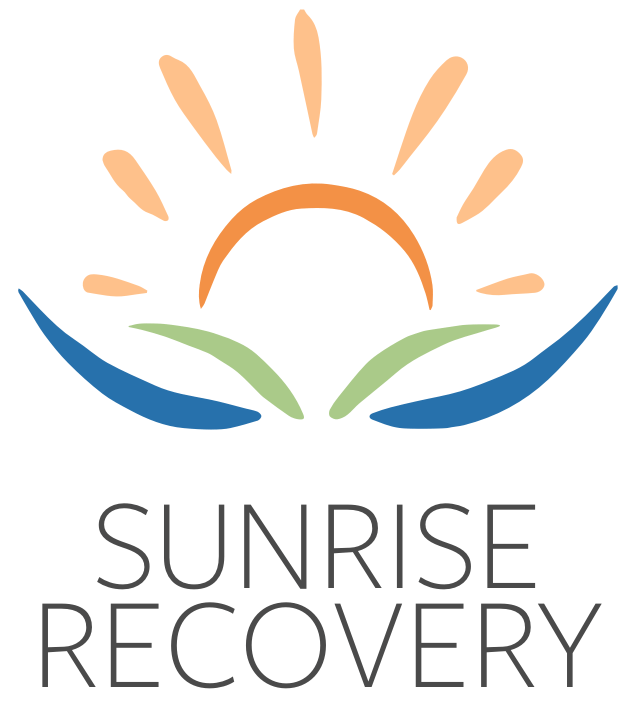Grief is something every person experiences, yet it affects each of us in different ways. It can follow the death of a loved one, a major life change, or the loss of something deeply important.
National Grief Awareness Day is observed annually on August 30th to highlight the importance of understanding grief, supporting those in mourning, and recognizing its impact on emotional well-being.
For people in addiction recovery, grief can be especially complex because the grieving process is experienced without the numbing effects of substances, making emotions feel more intense.
Without unhealthy coping mechanisms, individuals may face grief more directly, which can feel overwhelming but also lead to deeper healing.
In this article, we will look at complicated grief, explore how peer grief circles offer connection, and examine how therapy can support long-term recovery.
Understanding Complicated Grief in Recovery
Complicated grief occurs when intense sorrow does not ease over time and begins to interfere with daily functioning. It goes beyond normal mourning and can include persistent yearning, difficulty accepting the death of a loved one, or a sense of emptiness that does not fade.
Recognizing these signs early is important to prevent the feelings from becoming overwhelming.
In recovery, unresolved grief serves as a reminder of the profound impact that grief has on a person. This is particularly true when substance use previously masked emotional pain.
On National Grief Awareness Day, conversations about complicated grief highlight how unprocessed emotions can intersect with addiction triggers, making relapse more likely.
Addressing complicated grief in recovery may involve structured interventions such as grief counseling, peer groups, and targeted therapy. These supports can help individuals manage both their grief journey and their sobriety.
It is also beneficial to seek programs that can address co-occurring conditions for more comprehensive care.
Why Grief Feels Different in Recovery
Without the numbing effects of substances, emotional sensitivity becomes more pronounced during recovery. Feelings that might have been avoided in the past can now feel sharper, making the grieving process more intense.
August 30th marks National Grief Awareness Day in the US, a time that encourages reflection on how these emotions influence the recovery journey.
Recovery often comes with layered losses such as relationships that ended, milestones missed, and changes in personal identity. These losses can combine with the emotional pain of mourning to create a more complex grieving experience.
Understanding these overlapping challenges can help individuals prepare for the unique emotional demands of this stage.
Facing grief directly during recovery can strengthen emotional resilience. This process can help rebuild relationships with loved ones and create new sources of meaning in life. Although the journey can be difficult, it often leads to greater self-awareness and long-term healing.
The Role of Peer Grief Circles
Peer grief circles are group gatherings where individuals share experiences, memories, and coping strategies related to loss. These groups raise awareness about the many ways we as humans cope with grief and create a space where no one feels alone.
Participating in these circles can be especially meaningful on National Grief Awareness Day, when the focus is on acknowledging grief and supporting those in recovery.
Joining peer grief circles begins with recognizing the value of shared experiences in the healing process. Here are the key benefits these groups can offer to individuals in recovery:
- Building Supportive Connections: Participants form bonds that validate emotions, provide reassurance, and create a sense of belonging for those navigating both grief and recovery.
- Gaining New Perspectives: Hearing others’ stories allows members to reframe their own grief, learn new coping strategies, and develop greater self-compassion.
- Maintaining Consistent Support: Regular meetings offer stability and a dependable routine that helps sustain emotional well-being during vulnerable times.
- Learning Practical Coping Tools: Members share actionable ideas, such as mindfulness exercises or journaling, that can be applied daily to manage grief in healthy ways.
- Expressing Emotions Safely: The group offers a nonjudgmental environment where individuals can speak openly and feel validated in their grief.
- Finding Motivation to Heal: Witnessing others’ progress inspires hope, reinforces the belief that recovery is possible, and encourages continued healing.
In many communities, such as Clarksville, Jeffersonville, and Lafayette, peer grief circles are accessible and often connected to broader recovery resources. Local in-person options can provide both familiarity and accountability.
These circles serve as a poignant reminder to recognize, understand, and support those coping with grief.
How Therapy Supports Healing from Loss
Professional therapy offers structured strategies for processing grief and complements the emotional connection found in peer support. While peer circles create a sense of belonging, therapy raises awareness about grief and loss in a way that focuses on long-term coping skills.
Observances such as National Grief Awareness Day highlight the value of seeking professional help to process grief and strengthen recovery.
There are several therapy approaches that can help individuals in recovery address grief more effectively. Each method offers distinct benefits, allowing people to choose the one that best fits their needs and circumstances.
Below are three common approaches used to support healing from loss in recovery:
Cognitive Behavioral Therapy (CBT)
CBT helps individuals identify negative thought patterns and replace them with more constructive perspectives. It equips people with practical coping tools that can reduce emotional distress and lower the risk of relapse. This method works well in recovery because it addresses both the grieving process and the triggers that may arise from loss.
Acceptance and Commitment Therapy (ACT)
ACT focuses on accepting painful emotions instead of avoiding them, helping individuals live in alignment with their values. By embracing rather than resisting grief, people can integrate loss into their lives in a healthier way. This approach supports healing by encouraging purposeful action even when grief feels overwhelming.
Trauma-Focused Therapy
Trauma-focused therapy is designed for individuals whose grief stems from sudden or traumatic events, including the death of a loved one. It aims to reduce symptoms of trauma while guiding individuals toward a sense of stability and emotional safety. By working through traumatic grief, people can begin to reclaim their well-being and rebuild their lives.
Combining therapy with peer support creates a balanced approach to managing grief in recovery. Professional guidance addresses the deeper emotional patterns, while group connection reinforces daily coping skills.
Together, these resources give individuals the tools and confidence to navigate loss without compromising their sobriety.
Combining Recovery and Grief Support
National Grief Awareness Day brings attention to the importance of blending emotional healing with sobriety-focused strategies. Peer support offers compassion and shared understanding, while professional guidance provides tools to manage complex emotions.
Combining both approaches is a reminder to recognize and support those who are coping with loss in a holistic way.
Integrating grief support into recovery plans starts with understanding that emotional and mental health needs must be addressed alongside sobriety. Below are practical steps to make that integration effective:
- Attend Recovery and Grief Support Meetings: Participating in both types of groups addresses sobriety and mourning together, creating a balanced and complete support system.
- Schedule Regular Therapy Sessions: Consistent professional guidance helps process grief, manage emotional triggers, and protect recovery progress.
- Create Personal Healing Rituals: Meaningful activities such as journaling or visiting memorial sites provide comfort, stability, and a sense of connection.
- Strengthen Personal Networks: Building close relationships with friends and family offers encouragement, reduces isolation, and supports recovery goals.
- Set Realistic Emotional Recovery Goals: Breaking healing into achievable steps keeps progress measurable, motivating, and sustainable over time.
Balancing recovery work with grief support fosters long-term stability. Individuals can honor their mourning while protecting their progress toward sobriety. By building both emotional strength and coping tools, they can create a path forward that supports complete healing.
Final Thoughts
August 30 is National Grief Awareness Day, a time observed annually on August 30th to reflect on the impact of grief and its connection to recovery. This day raises awareness about the importance of addressing emotional pain alongside sobriety to strengthen overall well-being.
By learning about complicated grief, joining peer grief circles, and engaging in therapy, individuals can take meaningful steps toward long-term healing.
Seeking help for grief in recovery allows people to process loss while protecting their sobriety. Dual-diagnosis treatment can be a valuable option for those managing both substance use and mental health challenges, offering integrated support in one program.
Sunrise Recovery invites anyone navigating grief in recovery to reach out, start the conversation, and take the next step toward a healthier, more supported future.
Frequently Asked Questions (FAQs)
What is complicated grief, and how does it differ from normal grief?
Complicated grief is a persistent and intense sorrow that disrupts daily life for a long period. Unlike normal grief, which gradually eases, it can remain overwhelming and unchanged. It may need therapy or structured interventions, especially during times meant as a day to reflect on one’s own losses, like National Grief Awareness Day.
Can grief trigger a relapse in recovery?
Yes, unresolved grief can increase emotional vulnerability and stress. When these emotions are unmanaged, a person in recovery may return to unhealthy coping habits. Developing healthy ways to process loss can reduce this risk.
Does Sunrise Recovery offer therapy for grief?
Yes, therapy can be personalized to address both grief and addiction recovery needs. Evidence-based approaches help process loss while reinforcing sobriety skills. This combination improves the chance of long-term success.
Are peer grief circles available through Sunrise Recovery?
Peer grief circles may be available through local resources or partners. They can be added to a recovery plan to provide emotional support and shared understanding, which is helpful during an awareness week. These groups can lessen isolation while offering a safe space to share.
What is dual-diagnosis treatment?
Dual-diagnosis treatment addresses substance use disorders and co-occurring mental health issues together. This is useful when grief comes with depression, anxiety, or similar challenges. These programs may align with initiatives like an awareness month that promotes both mental health and recovery.







